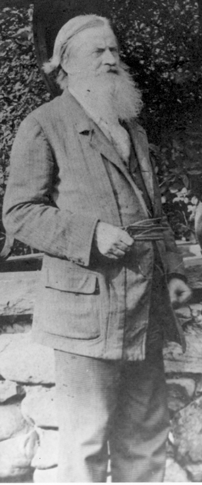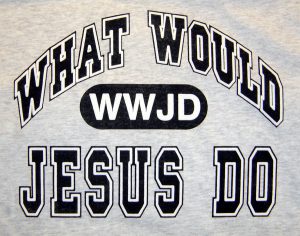
My favorite philosopher, Charles Sanders Peirce, was fond of reminding his fellows and readers that the world has a way of correcting (sometimes brutally) our false ideas. Misjudge a staircase and you get a bruised knee, misjudge the weather and you get wet, misjudge the market and you go broke. In the long run, Peirce argued, the world ultimately corrects our false hypotheses. So correction hurts, but subjecting ourselves to correction is the only way in which we ever grow, learn and improve ourselves.
Given this state of affairs, Peirce recommended that the prudent course of action was for the wise person to subject herself to constant non-catastrophic correction: listen to critics, perform controlled experiments, and test new theories in controlled environments before adopting them wholesale. The best way to be right in the long run is constantly to listen to voices and heed data that suggest a course correction. The surest way to guarantee failure is to listen only to opinions and heed only data that confirm one’s own assumptions and hypotheses. Today, we know this phenomenon of “isolation from correction” by another name: the media echo-chamber.
The frequent Fox News viewer might almost be forgiven for thinking that President Obama was not born in the United States, that health care reform will lead to Nazi death camps for beloved grandparents, and that America is fast becoming a Leninist dystopia. Viewers who also spend hours listening to Rush Limbaugh and reading op-eds from Gingrich literally might not know any better. They rarely hear opinions from the other side that aren’t simple strawmen or caricatures. And yes, the same phenomenon exists on the far Left. Just google Lyndon La Rouche or “9/11 conspiracy” for plenty of examples. I refuse to provide actual links to this nonsense be it on the Right or on the Left.
Despite the proliferation of media sources via the internet and the explosion of blogs, micro-blogs, and other outlets, many of us are becoming less not more informed because we now have more choices as to where we get our information. World, national, and local news is now largely an “opt-in” phenomenon, one where we select which podcasts, blogs, papers, and television shows will get our attention and tune out all of the others. Consequently, increasing numbers of us – I’m just as guilty here – are choosing only those sources that reflect our own assumptions and biases. On the Media, a public radio broadcast and podcast, has been running stories on this phenomenon for the past several months. I highly recommend their coverage.
For the media consumer who reads only one kind of book, watches only one kind of news, skims only certain blogs and papers, and has only one radio station programmed into their car’s preset buttons, the danger is that they encounter only a small range of opinion and news. This is the media echo-chamber in which one hears only a single voice echoed back again and again in slightly different keys.
When I was growing up in a mid-western Evangelical church a similar phenomenon was rampant, despite the fact that the internet was decades away from becoming a household name. We lived on the edges of the Evangelical echo-chamber and were only prevented from falling in entirely because my parents were college educated professionals with too much respect for their colleagues and the written word. Many people we knew watched the 700 Club for their news, read only magazines published by their denomination, listened only to Christian music and Focus on the Family and never went to the movies. “The World” was something to be kept at arms length and this included secular shows, secular papers, secular music, secular books and even secular people! The Evangelical Blue Pages was a phone book for Evangelicals. It was designed so that we could be sure to hire a Christian plumber or patronize a Christian bakery and avoid uncomfortable interactions with “The World.”
Where is the correction? Where do we go to have our biases and presuppositions challenged? I know the answer that many Evangelicals in the echo-chamber would give: “We go to the Bible and other Christians for correction.” True enough, but where then do we turn to have our interpretations challenged? Where do we go to subject our group and its biases to correction and testing? Turning exclusively to our neighbors in the echo-chamber offers only the most superficial form of correction and presumes that our denomination, our church, our congregation, or our tribe is a wholly adequate source and representation of truth.
The good news that I see is that there has been a growing movement over the last decade to break down the walls of the Evangelical echo-chamber and, in a sense, let “The World” in. Many of us have begun to acknowledge our provincial attitudes and arrogance and have made strides toward taking non-Evangelicals seriously as sources of wisdom and partners in creation care. However, there is also potential bad news on the horizon as growing numbers of Conservative Evangelical Christians become politically active on behalf of politically Conservative causes. How worried should we be by the recent vitriol displayed by many at the healthcare reform town halls? How should we look on the Glen Becks and Rush Limbaughs of the Right? Does their popularity among many Evangelicals threaten Evangelical ideals? Perhaps, but there is one ideal in particular that I think deserves our serious attention: the ideal of Christian unity.
Inside the echo-chamber one voice dominates. This one voice may issue from several mouths but it spouts only familiar sentiments and makes no intellectual demands. When the content of the message is always the same, the only source of variation and novelty is rhetorical, so volume and vitriol replace substance, nuance, and balance. But for Evangelicals I worry that the biggest casualty of the echo-chamber is the critically important moderate voice. In the world at large and in the Church Universal moderates are a cherished group. They bind the Church together just as they frequently hold together the political center of a nation. The moderates act as moderators, chasten the extreme members of both sides, and work to preserve civility and remind Christians of our common love of Christ and our common condition as sinners in need of grace. But inside the echo-chamber the moderate is a dying breed. She or he is looked at not as a welcome friend who plays a crucial role in our common lives, but rather a potential enemy, a possible spy or traitor. The moderate is not viewed as a true believer. She is wishy-washy. He is luke-warm. She is not to be trusted. With Christians like him, who needs non-Christians?!
When Evangelicals choose to weave themselves into a cocoon of sycophantic media and self-referencing pundits, we choose to forgo possible correction and disenfranchise and, what may be worse, we alienate the very moderates that ought to be our best ambassadors to the world. When we do this, we may rightly call ourselves Conservatives, but we ought to give up on the term Evangelical. Evangelicals have always been defined by our love of sharing the Gospel of Jesus with the world, and this cannot be done from inside the echo-chamber. From that place, we are the only ones that can hear our voice.



